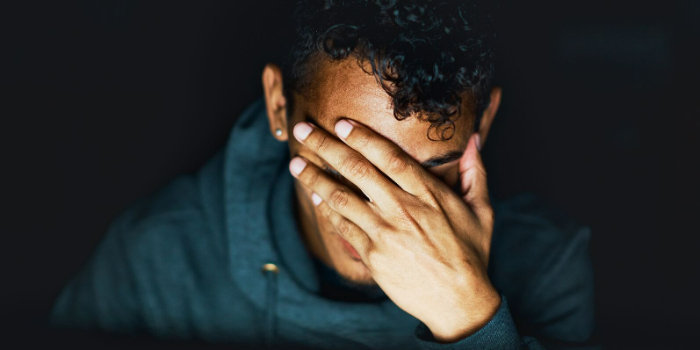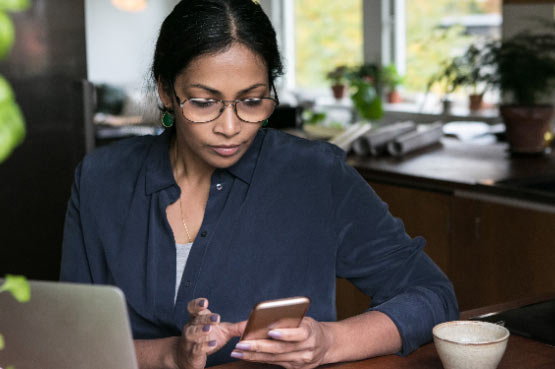Types of addiction and getting support
Addiction is when we don’t have control over doing, taking, or using something. Addiction often involves a substance like alcohol, nicotine, or drugs. But it’s possible to become addicted to lots of things such as gambling or social media.
Here, I look at different types of addiction and what support is available for you or a loved one.

How do addictions start?
Addictions begin for all sorts of reasons. Drugs, alcohol, and nicotine affect the way you feel. They can make you feel relaxed, and less self-conscious. This can make you feel an urge to use or take the substance again to try and recreate these feelings.
Taking certain drugs and gambling can create mental ‘highs’, which are usually followed by a strong urge to do it again. Once a habit develops, it can be very hard to stop.
If you’re addicted to something, you often lose the ability to choose whether to stop or continue the behaviour. You may crave it, and not having it can cause withdrawal symptoms. These symptoms can be unpleasant, so you may think it’s easier to continue the behaviour. And, it then becomes hard to break this cycle.
What are the different types of addiction?
Alcohol addiction
Lots of people drink alcohol and it’s easy to buy. But, it’s highly addictive and can cause many physical and mental health problems. It can also affect your relationships and work.
If you’re dependent on alcohol, you’ll crave it and can have a high tolerance for it. This means you might often have to drink a lot to feel drunk, and won’t have a hangover the next day. You might also continue to drink even when you know it’s damaging your health.
There are lots of support groups and treatment plans to help with alcohol addiction. The charity Alcoholics Anonymous can offer advice on how to start your recovery.
Below, Joshua shares his story about his recovery from alcohol addiction.
Recovering from alcohol addiction: Joshua’s story
Joshua:
When I first started drinking, I thought alcohol made me better than I was, and thought it gave me stuff I couldn't have. But, in the end I realized it stripped me of absolutely everything.
I’d say I was probably 17 or 18 when I started drinking on a regular basis, going to local bars and pubs. I enjoyed the impact that alcohol had on me. I found something I was missing.
My drinking went from being something that was controllable and something that was enjoyable to being something that was out of control and destructive.
How alcohol affected me
The way I constantly felt was a numb, dull pain in my head from excessive alcohol. The only relationship that probably grew throughout addiction was my relationship with my brother, because he was in the same boat as me. We both went to our first meeting together, we’ve both gone through recovery together. Now we both have a much better relationship as a result.
My journey to recovery
I was visiting family in New York and I had a nice day out seeing the Statue of Liberty and Ellis Island and all those types of things.
I actually managed to buy a copy of a book by Russell Brand called Freedom from Our Addictions, and there was a few hours between where I finished my tour of the statue of Liberty and stuff, and the book signing was about to start and he was going to do a Q&A.
I went to a bar and just drank and then throughout the Q&A with Russell Brand, people were sharing their experiences or asking him questions specifically focused around recovery, addiction, and how you can be free from this stuff.
I saw there was a solution at that point. So literally within about three or four hours, I'd gone from this desperate situation drinking on my own to then seeing actually there is a solution, there is hope out there. There is a way to live a life without needing to do this.
How I feel now
I mean, I don't remember what a hangover feels like, which is quite a strange feeling. I feel fresh and I go to the gym most days. It's motivated me to care less about external things.
I constantly thought I was defined by the car I drove, the shoes I wore, or how many likes I got on Facebook. But, by going through recovery, you take a step back and say, just enjoy life for what it is. Actually accept you’re just fine how you are.
I couldn't explain how much happier I am now than when I was in active addiction. I do more on a Sunday morning than I used to do in a whole week in terms of productivity and being of benefit to other people. My life is completely transformed within a year.
My advice to others
My advice would be to explore your relationship with alcohol. If you go out, do you know when you're going to come home? how much you might drink? where the night will end up? who you'll end up with? how much you might end up spending? If you cannot control or choose those things, then at that point you become powerless. And that to me suggests that you've probably got an addiction, or at least a heavy drinking problem.
If you have either of those things, I'd suggest going to a meeting and discussing with some likeminded people how you’re feeling and where you're at in life. And I think you'll soon have a fairly good indication of if you have a problem or not.
Everyone should do what's right for them. I think everybody at least owes it to themselves to understand what triggers their drinking and if they can control it.
Drug addiction
Both illegal and prescription drugs can be addictive.
Regular use of powerful drugs, such as heroin and cocaine, often lead to addiction that can have a serious impact on your health and wellbeing.
If you have chronic pain, your doctor might prescribe painkillers. But you should only use them for a short amount of time. This is because they can be addictive, and it can become very hard to stop taking them.
As well as mental and physical health problems, drug addiction can lead to:
- the breakdown of relationships
- job loss
- financial struggles
- homelessness
If you have a drug addiction, or you know someone who does, get support to find the right treatment. Contact your GP, your local NHS drug and alcohol service, or one of the following drug support organisations.
Gambling
If you regularly gamble, you can become addicted to the thrill and excitement you might feel whilst gambling. It’s estimated that around 1 in every 100 people have a gambling disorder.
Gambling can take on different forms. Some people might gamble through the lottery or online casino games. But, problems can also start from gambling through investments, trading, and spending money in online games.
Gambling can result in serious debt and financial problems, which can affect your life and the lives of those around you.
If you or a loved one is struggling with a gambling addiction, you can seek support and advice from gambling support charity GamCare.
How is addiction treated?
There are different treatments available depending on the type of addiction you need support with. For the best chance of a successful recovery, you might often require a combination of some of the following:
- medication
- talking therapies like cognitive behavioural therapy (CBT)
- attending support groups and meetings
- counselling
Where can I go for support and advice on addiction?
There are many support charities and organisations that offer advice and can help you begin your recovery. Action on Addiction is a great resource for anyone affected by addiction.
Remember, your GP is there to see you about all aspects of your physical and mental health, including addiction. Making an appointment can be a good first step towards recovery.
-
Sources Sources
- Addiction definition. Cambridge dictionary. Dictionary.cambridge.org. Accessed June 2023
- Drug misuse and dependence. UK guidelines on clinical management. Department of Health. Gov.uk. Published July 2017
- Gambling and mental health. Mental Health Foundation. mentalhealth.org.uk. Last updated 5 August 2021
- Boer M, Stevens GWJM, Finkenauer C, Koning IM, van den Eijnden RJJM. Validation of the Social Media Disorder Scale in Adolescents: Findings From a Large-Scale Nationally Representative Sample. Assessment. 2022 Dec;29(8):1658-1675. doi: 10.1177/10731911211027232
- Cheng C, Lau YC, Chan L, Luk JW. Prevalence of social media addiction across 32 nations: Meta-analysis with subgroup analysis of classification schemes and cultural values. Addict Behav. 2021 Jun;117:106845. doi: 10.1016/j.addbeh.2021.106845
- Kranzler HR, Li TK. What is addiction? Alcohol Res Health. 2008;31(2):93-5. PMID: 23584810; PMCID: PMC3860451
- Sussman S, Lisha N, Griffiths M. Prevalence of the addictions: a problem of the majority or the minority?. Eval Health Prof. 2011;34(1):3-56. doi:10.1177/0163278710380124
- Sussman S, Sussman AN. Considering the definition of addiction. International Journal of Environmental Research and Public Health 2011; 8(10):4025–38
- Alcohol - problem drinking. NICE Clinical Knowledge Summaries. Cks.nice.org.uk. Last revised November 2022
- Opioids Aware. Faculty of Pain Medicine of the Royal College of Anaesthetists. Fpm.ac.uk. Accessed June 2023
- Misuse of illicit drugs and medicines: applying All Our Health. Office for Health Improvement & Disparities. Gov.uk. Updated 23 February 2022
- The effects on the family. Adfam. Adfam.org.uk. Accessed June 2023
- An independent review into the impact on employment outcomes of drug or alcohol addiction, and obesity. Gov.uk. Published December 2016
- Gambling disorder. Royal College of Psychiatrists. Rcpsych.ac.uk. Published December
- Alcoholism: signs, symptoms and treatment. Drinkaware. Drinkaware.co.uk. Last reviewed 4 February 2022
- Gambling and mental health. Mental Health Foundation. mentalhealth.org.uk. Last updated 5 August 2021
- Working with addiction. Healthcare Counselling and Psychotherapy Journal. BACP. Bacp.co.uk. Published April 2020
About our health information
At Bupa we produce a wealth of free health information for you and your family. This is because we believe that trustworthy information is essential in helping you make better decisions about your health and wellbeing.
Our information has been awarded the PIF TICK for trustworthy health information. It also follows the principles of the The Information Standard.

More mental health and wellbeing articles
Did you find our advice helpful?
We’d love to hear what you think. Our short survey takes just a few minutes to complete and helps us to keep improving our healthy lifestyle articles.
Legal disclaimer
This information was published by Bupa's Health Content Team and is based on reputable sources of medical evidence. It has been reviewed by appropriate medical or clinical professionals and deemed accurate on the date of review. Photos are only for illustrative purposes and do not reflect every presentation of a condition.
Any information about a treatment or procedure is generic, and does not necessarily describe that treatment or procedure as delivered by Bupa or its associated providers.
The information contained on this page and in any third party websites referred to on this page is not intended nor implied to be a substitute for professional medical advice nor is it intended to be for medical diagnosis or treatment. Third party websites are not owned or controlled by Bupa and any individual may be able to access and post messages on them. Bupa is not responsible for the content or availability of these third party websites. We do not accept advertising on this page.







